Panelists: Dr. Giacomo Vivanti, Dr. Cynthia Zierhut, Dr Federica Lentini, Ms Carmen Gamper, Ms Yamit Karalbenik, Ms Amanda Riccetti, Prof. Paola Aiello, Dr. Jennifer Solomon.
- Keynote speaker
Dr. Giacomo Vivanti, A.J. Drexel Autism Institute, Drexel University, Philadelphia
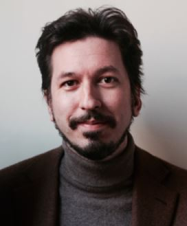
BIO
Giacomo Vivanti is Assistant Professor at the A.J. Drexel Autism Institute, Drexel University, Philadelphia. After receiving his PhD from the University of Siena, Italy, in 2008, he pursued an international career in the field of autism research, including a visiting fellowship at the Yale Child Study Center, and postdoctoral research positions at the University of California Davis MIND Institute, and the Olga Tennison Autism Research Centre in Melbourne, Australia. His career as a scientist has been driven by a key commitment, namely, understanding the nature of learning difficulties in autism and developing effective programs to address such difficulties within community-based settings. Dr. Vivanti is a member of the Italian Istituto Superiore di Sanita’ (Institute of Health) Committee to establish the Italian guidelines on Autism diagnosis and treatment, a member of the Italian Scientific Board of the Italian Society for Autism Research (AIRA), an Associate Editor of the Journal of Autism and Developmental Disorders, and consultant for clinical and research programs on autism in US, Europe, Australia and Asia. He is the author of 4 books and over 50 peer-reviewed articles and book chapters on autism.
Abstract
Early learning and early intervention in Autism
The presentation will focus on the principles, strategies and evidence base of the Group – Early Start Denver Model (G-ESDM), an early intervention program designed to facilitate learning in young children with autism in the context of childcare and preschool settings. The G-ESDM approach is based on recent research on how young children with ASD learn, and it involves a distinctive focus on early social-emotional engagement, social motivation and social learning. Additionally, the G-ESDM emphasizes the importance of addressing multiple developmental domains within group-based cooperative learning experiences. We will discuss recent research on the effectiveness of this program across specialized and inclusive childcare settings.
- Chair of the Panel
Dr. Cynthia Zierhut, Early Days Autism Center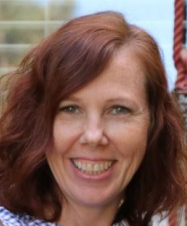
BIO
Dr. Cynthia Zierhut, Ph.D. is a developmental and licensed clinical psychologist specializing in working with young children with Autism Spectrum Disorders and their families. She worked as a clinical supervisor and project manager for the Early Start Laboratory at the UC Davis MIND Institute for twelve years under the mentorship of Dr. Sally J. Rogers. She is also a lead trainer in the ESDM Training Program. Dr. Zierhut, also, managed a collaborative ESDM group delivery project in Melbourne Australia in 2011 with her colleagues Dr. Cheryl Dissanayake and Dr. Giacomo Vivanti. Dr. Zierhut aims to make accessible high quality learning opportunities for therapists in local communities and for our international colleagues to disseminate the ESDM so that more children and families have access to this highly effective intervention in those early days.
- Ms Carmen Gamper
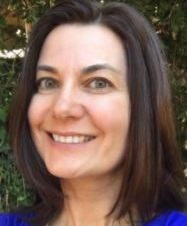
BIO
Carmen Gamper is founder of New Learning Culture Consulting and passionately serves as an international advocate and consultant for innovative child-centered education. She combines elements from Montessori, Waldorf, and Reggio Emilia education, as well as the new sciences of epigenetics and neuro-cardiology.
Carmen is part of a new European wave of “enhanced” Montessori teachers who are inspired by Rebeca Wild, Claus-Dieter Kaul, and Joseph Chilton Pearce. She co-created two K-8 private schools in Europe based on child-directed learning within healthy boundaries.Abstract
Natural Learning in Early Childhood
Young children are naturally guided from within towards learning, developing hands-on skills, and exploring their surroundings. Let’s explore some of the ways young children learn spontaneously, and find out how we can support their self-motivated learning processes.
- Mrs Federica Lentini
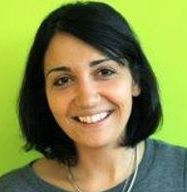
BIO
Federica grew up in the city of Torino, in the north west of Italy. She received her degree in Clinical Psychology at the University of Torino in 2005. In 2007 she passed the exam to be licensed as a psychologist. During her project at the University, she has worked with special needs children and with individuals with “internet addiction” and attachment disorders. After her studies, Federica decided to move to San Francisco where she volunteers at the Women’s Building as a counselor for SFWAR. Federica joined the La Scuola team in the spring of 2008. She enjoys spending time with children and to experience and learn from the way that children learn. La Scuola is a great place to share her culture and passions with others. Federica is passionate about music, especially singing and playing the guitar. For many years, Federica studied at the “Centro Jazz” in Torino and at the “Madrigale”. This passion makes San Francisco a great place to be for Federica.
Abstract
“Reggio Emilia Approach”
The Reggio Emilia Approach is an educational philosophy based on the image of the child, and of human beings, as possessing strong potentials for development and as a subject of rights who learns and grows in the relationships with others.
Focusing on the centrality of the hundred languages belonging to every human being, in the atelier spaces young children are offered daily opportunities to encounter many types of materials, many expressive languages, many points of view, working actively with hands, minds, and emotions, in a context that values the expressiveness and creativity of each child in the group.
- Ms Yamit Karabelnik
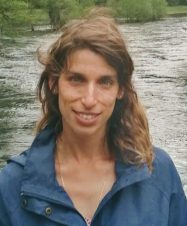
BIO
Yamit Karabelnik, Master in Child Development is a Certified ESDM therapist and a G-ESDM specialist. She earned her Master in Education and Child Development in Bar Ilan University in Israel. Since 2012, Yamit has been working with children with ASD in treatment sessions and special inclusion programs sponsored by Children at Risk organization in Israel. She has been utilizing the ESDM since 2014, first as a one on one therapist in-home programs and then as a G-ESDM therapist, utilizing ESDM in pre-schools settings in Israel where she has been training and supervising staff using the ESDM. Yamit has been trained and mentored by Dr. Zierhut since she began using the ESDM method. She is now cooperating with the Early Days Autism Center to develop knowledge and research on G-ESDM. Yamit plans to become a formal trainer in the ESDM method. She has recently completed the coursework for the parent coaching model (P-ESDM). Her long-term goals are to help expand the use of ESDM in Israel and in the Middle East, and to help therapists, preschools and other groups settings to successfully use the G-ESDM, helping children to learn, grow and interact.
Abstract
Inclusion and G-ESDM: experience and clinical development
The current body of research shows a growing need for community group setting centers for treating young children with special needs. The G-ESDM manual, published this year, offers evidence based practices, strategies and treatment plans for community-based centers to develop high quality services for children with autism. Many countries already have public health and education system to treat children with autism. However, different cultures have different values to include children with disabilities. Implementing G-ESDM in an existing environment in consideration of cultural differences may be challenging but have many benefits. The talk will cover some of our experiences using G-ESDM in school settings both in Israel and in the US and offer how the G-ESDM model can be adopted into an integrated classroom.
- Amanda Riccetti
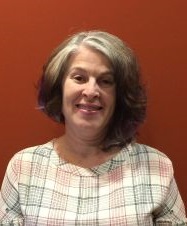
BIO
Amanda Riccetti is the director and owner of Big City Montessori School in San Francisco, California. She has been with BCMS since 1980. Before assuming her current position, Amanda spent years as a Montessori teacher, working hands-on with the students in her preschool program. Today, she continues to observe the classrooms and give the children lessons from time to time.
As both a Montessori teacher, and a mother of two children with learning differences, Amanda has personally witnessed the struggle that children may have with learning to read. This had led her to begin writing a “learning to read” series of books called Reading with Miss Peach which are based on the Montessori method and are intended to make learning to read a fun, confidence-building and educational experience for all children. She hopes to have the full series available in early 2018.Abstract
Montessori Education and the Young Child
This presentation will discuss the ideas and philosophy of Maria Montessori and how she created a curriculum that was for the whole child. The Montessori classroom environment is constructed to enhance a young child’s independence in learning, and allows the young child to utilize their own developing skills in a way that maximizes their potential brain development through exploration. We will discuss how the philosophy and curriculum of Montessori directly supports the absorbent mind of the young child. Montessori is particularly beneficial to children with high IQ’s, and equally for children with learning differences, because of the nature of the classroom that allows for repetition and self discovery. This will include an understanding of the prepared environment, the highly trained teacher, and the mixed age classroom.
- Prof. Paola Aiello
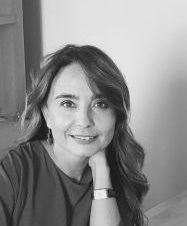
BIO
Paola Aiello is Associate Professor in Special Didactics and Pedagogy and is Doctor of Philosophy in Educational Research Methodology at the Department of Humanities, Philosophy and Education, University of Salerno. Since 2009, she has been lecturing in undergraduate and postgraduate courses as well as in a number of continuous professional development courses, offered by this Department. She has been the Director of the Post-graduate course entitled “Didactics and psycho-pedagogy for students with autism spectrum disorders”. Since 2013 she has held the position of Delegate for disability.
Currently, she is the Principal investigator of the Scientific Project “Inclusion and teaching: teacher education based on simplex didactics”. She is also involved in other research projects related to the development of technology to promote inclusion, simplexity in didactics and didactics for students with autism spectrum disorders. Her research interests include: inclusion, teacher education and the implicit variables that influence teacher agency to implement inclusive practices in formal and informal educational contexts.Abstract
The presence of students with Autism Spectrum Disorders in Italian educational settings represents a challenge for both scholars in the field of special education and the teachers who work within this political-cultural context – a system which for a number of years has been oriented towards full inclusion aimed at guaranteeing educational success of each and every student. This poses a challenge because:
– the dyad characterizing Autism, according to the Diagnostic and Statistical Manual of Mental Disorders, and more particularly the social deficit, seems to undermine the basis of an inclusion based on social participation;
– these students’ educational process represents the testing field of the possible application of a series of reflections that are at the basis of the scientific revolutions which generated the shifts from the individual-medical model to the bio-psycho- social model of disability and from the paradigm of integration to that of inclusion;
– having to deal with autism entails facing a wide range of interpretative hypothesis of the disorder which have not yet led to a clear and shared “understanding” of its causes;
– autism is very difficult to place within a standardized classification due to its wide spectrum of possibilities and manifestations, thus making drawing up a predefined educational protocol impossible.
For these reasons and with the aim of supporting teachers in their arduous task to face this complexity, Italian educational research has opened its doors to other fields of research and approaches that could potentially favor real inclusive teaching methods. The major challenge for those who strive to find solutions for the betterment of these students’ education, is to transpose evidence-based indications and suggestions, such as those developed in the medical and psychological fields, and apply them to Italian educational contexts. This, of course, needs to take place within the constraints of our educational system and the long tradition that has led our country to be one of the first countries in the world to believe that school integration and, consecutively, inclusion is the only way to guarantee each and every student the inalienable right of reaching one’s own goals in life.
- Dr. Jennifer Solomon
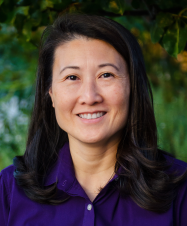
BIO
Jennifer Solomon Tan is a Senior Applications Scientist for a biotech company. Jennifer received her BS in Microbiology and a minor in Art History from the University of California, San Diego. After working in an HIV research lab at UCSD she decided to go to graduate school. She received her Ph.D. in Molecular and Cellular Oncology from George Washington University. She did her Post Doc in Immunology studying T cells at the University of California, Irvine.
Jennifer lives in Fairfield, CA with her husband Arlo, 2 sons (Calvin and Russell) and their dog Hank. Her younger son Russell is 6 years old and is diagnosed with autism spectrum disorder.Abstract
As parents we have choices to make that will affect our children’s future. Our 6 year old son is autistic and at 3 years old was placed in a special education public preschool class for children with autism. I will discuss the path we took towards inclusion preschool. I will also compare our son’s experience in special education to his experience in an inclusion classroom. I will tell you what I’ve learned as a mom from sending my son to an inclusion preschool and how this has dramatically changed our whole family. Finally, I will tell you how inclusion preschool not only prepared my son for inclusion kindergarten but also primed him to excel.
Scientific Coordinator
Irene Russo (Early Days Autism Center)
Organizing Committee
Sonia Alioto, Elisabetta Ghisini, Francesca Morabito, Davide Pietrobon, Maria Fassio Pignati (Comites San Francisco)
Claudia Cattoglio (Italian Society at Berkeley)
Irene Russo
Technical Support
Maria Iozzo, Francesco Meo, Francesca Morabito (Comites San Francisco)
